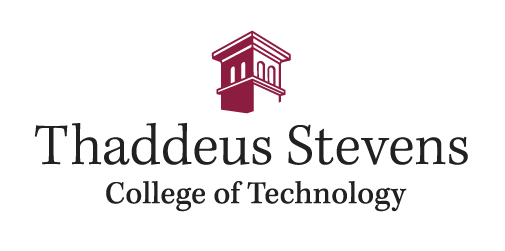Electrical Technology Schedule & Curriculum
MODEL SCHEDULE FOR ELECTRICAL TECHNOLOGY
SEMESTER 1
ELEC 107 Theory and Analysis Lab I 1
ELEC 113 Theory and Analysis I 4
ELEC 117 Practicum 4
ELEC 120 Systems Design I 3
MATH 137 Intermediate Algebra 3
ENG 106 Composition I 3
SEMESTER 2
ELEC 126 Systems Design II 3
ELEC 157 Theory and Analysis lab II 1
ELEC 162 Theory and Analysis II 4
ELEC 168 Practicum II 4
MATH 141 Trigonometry 3
ENG 216 Technical Writing 3
SEMESTER 3
ELEC 211 Industrial Electronics 4
ELEC 216 D.C. & A.C. Motors and Generators 4
ELEC 257 Industrial Motor Control 4
PHYS 213 General Physics I 4
CIS 111 Intro to Computer Applications 3
SEMESTER 4
ELEC 206 Industrial Electricity 4
ELEC 263 Advanced Industrial Motor & Drive Control 4
ELEC 267 Programmable Logic Controllers 4
Humanities Elective 3
ADDITIONAL GENERAL EDUCATION REQUIREMENTS
HEAL Elective HEAL 106 or HEAL 111 1
ELECTIVE General Education Elective 3
TOTAL CREDITS 74
Click here to download PDF Version of Electrical Technology Curriculum
ELEC 107 (1 credits)
Electricity I: Theory and Analysis Lab
Laboratory assignments enable students to demonstrate the theoretical topics covered in ELEC 113. Lab sessions train students to properly connect electrical circuitry and utilize appropriate metering instruments to take specific measurements to determine voltage, resistance, current, and power, and to troubleshoot various circuit layouts. Co-requisite: ELEC 113
ELEC 113 (4 credits)
Electricity I: Theory and Analysis
This course presents principles, laws, and formulas relating to basic direct current (DC) and alternating current (AC) applications in electricity. Topics include electron theory, magnetism, DC power supplies, Ohm’s Law, Kirchhoff’s Laws, AC waveform analysis and basic motor design. Resistive and inductive loads and various electrical circuit layouts are analyzed.
Co-requisite: ELEC 107
ELEC 117 (4 credits)
Electricity I: Practicum
Workshop projects enable students to develop an understanding of fundamental residential and preliminary commercial circuit design and installations, in accordance with the National Electrical Code (NEC) and associated building regulations.
Co-requisite: ELEC 120
ELEC 120 (3 credits)
Electricity I: Systems Design
This course is an introduction to fundamental residential and preliminary commercial wiring systems design. Topics include Occupational Safety and Health Administration (OSHA) certification, electrical and on-the-job safety, tool and material familiarization, plan design and specifications, wire diagrams, and the use of applicable National Electrical Code (NEC) standards. Co-requisite: ELEC 117
ELEC 126 (3 credits)
Electricity II: Systems Design
This course is an advanced study in commercial and industrial electrical systems design and installation. Sizing various raceway systems for commercial and industrial applications, custom electrical enclosure sizing, and polyphase distribution systems are reviewed in detail. Industrial process and motor control material, circuit planning and design, and AC motors sizing and wiring methods introduce students to advanced electrical control systems. Prerequisites: ELEC 113, ELEC 117, and ELEC 120
Co-requisite: 168
ELEC 157 (1 credit)
Electricity II: Theory and Analysis Lab
Laboratory assignments enable students to analyze AC waveforms and AC circuit characteristics by connecting the appropriate electrical components and utilizing electrical measuring instruments to take specific measurements. Computer software is used to enable advanced circuit analysis and troubleshooting. Prerequisites: ELEC 113, ELEC 117, and ELEC 120 Co-requisite: ELEC 162
ELEC 162 (4 credit)
Electricity II: Theory and Analysis
This course presents an advanced study in the principles, laws, and formulas relating to alternating current (AC) applications in electricity. Topics include AC waveform analysis, electromagnetism, power generation and distribution, vector diagrams, power factor and correction, single-phase and polyphase systems, and motors. Prerequisites: ELEC 113, ELEC 117, and ELEC 120 Co-requisite: ELEC 157
ELEC 168 (4 credit)
Electricity II: Practicum
This course is a hands-on approach to commercial and industrial electrical systems design and installation. Assignments include schematic and ladder diagramming, commercial wiring and raceway systems installations, process control wiring, troubleshooting single-phase and poly-phase distribution systems, motors, and motor control circuits.
Prerequisites: ELEC 113, ELEC 117, and ELEC 120
Co-requisite: ELEC 126
ELEC 206 (4 credits)
Industrial Electricity
Prerequisites: ELEC 156 and ELEC 161
ELEC 211 (4 credits)
Industrial Electronics
Theory and practice in basic electronic components, and single- and poly-phase rectifier circuits, including power supplies. Use of thyristors to control the average load current through machinery in
Prerequisites: ELEC 126, ELEC 162, and ELEC 168
ELEC 216 (4 credits)
DC and AC Motors and Generators
ELEC 257 (4 credits)
Industrial Motor Control
This course presents principles and industry standards relating to the design and installation of basic industrial motor control circuits. Additionally, the theory and operational characteristics of electrical devices utilized in control circuits
the opportunity to design, install, and operate various motor
control schemes/circuits. Prerequisites: ELEC 162 and ELEC168
ELEC 263 (4 credits)
Advanced Motor and Drive Controls
This course presents principles and industry standards relating to the design and installation of advanced industrial motor and
Prerequisites: ELEC 216 and ELEC 257
ELEC 267 (4 credits)
Programmable Logic Controllers
This course presents principles and industry standards relating to the use of PLCs used for the automation of industrial process controls. Additionally, students learn to utilize the proprietary programming software to interact with and program PLCs. Topics include PLC hardware characteristics, Boolean logic, number systems, relay-type, timing, counter and advanced PLC instructions. A laboratory component provides students with the opportunity to design, to install, and to operate various PLC-controlled processes in a simulated and hands-on environment.
Prerequisites: ELEC 211 and ELEC 257
